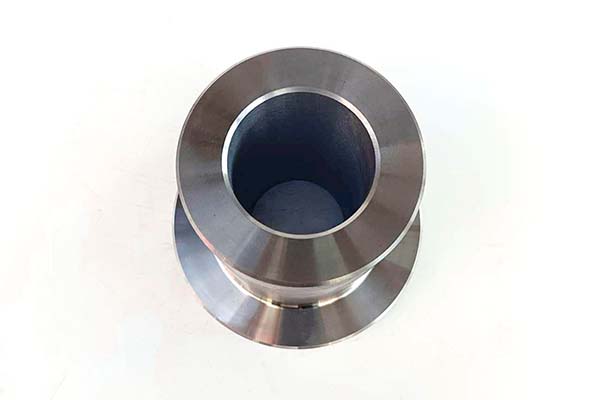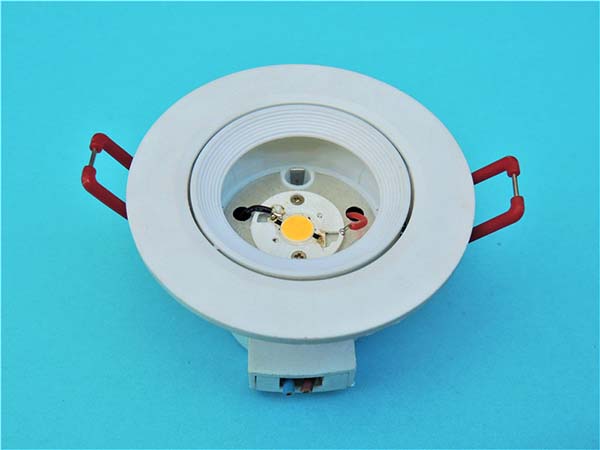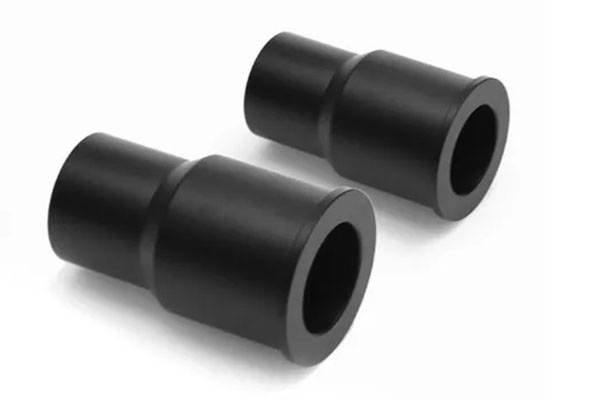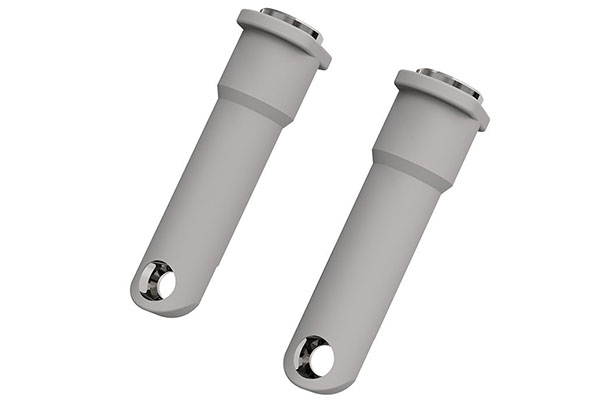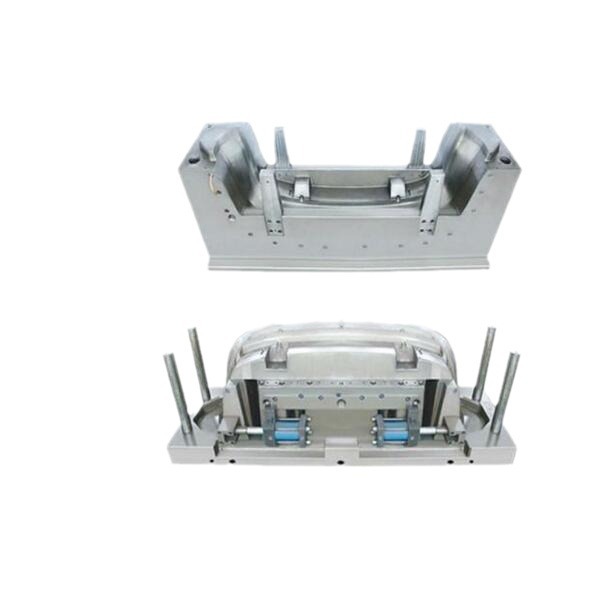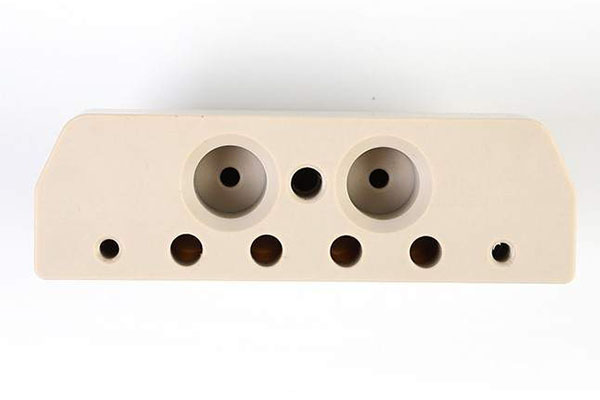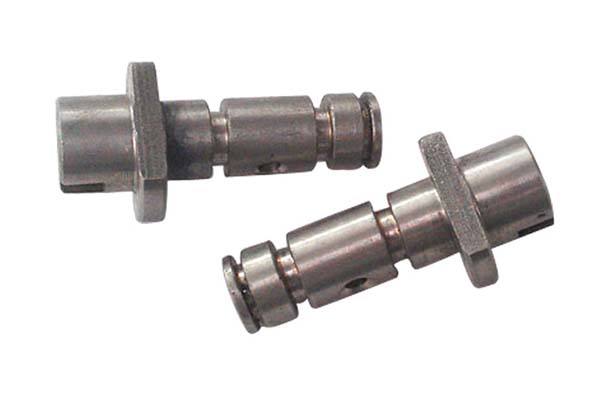1. Introduction
In the dynamic realm of modern manufacturing, the significance of selecting a reputable CNC milling manufacturer cannot be overstated. CNC milling, short for Computer Numerical Control milling, has emerged as a cornerstone technology, revolutionizing the production of precision - machined parts across diverse industries.
The precision and efficiency offered by CNC milling are crucial for industries such as aerospace, automotive, medical, and electronics. For instance, in the aerospace industry, where components must withstand extreme conditions, the slightest deviation in part dimensions can lead to catastrophic consequences. A reliable CNC milling manufacturer ensures that parts are produced with the highest level of accuracy, meeting the stringent tolerances required. In a study by the International Academy of Production Engineering, it was found that over 80% of aerospace manufacturers rely on CNC milling for the production of critical components.
Given the far - reaching implications of CNC milling in these industries, choosing the right manufacturer becomes a decision that can significantly impact product quality, production efficiency, and ultimately, the success of a business. Yigu Technology will explore the key factors to consider when evaluating a CNC milling manufacturer, providing valuable insights for those seeking a reliable manufacturing partner.
2. Experience and Expertise
Experience and expertise are fundamental aspects when evaluating a CNC milling manufacturer. A manufacturer with a long - standing presence in the industry is more likely to have encountered and overcome a wide range of challenges, which equips them with the knowledge and skills to handle diverse projects.
2.1 Industry Track Record
A reputable Yigu Technology CNC milling manufacturer should be able to provide a portfolio of past projects. For example, if you are in the automotive industry, a manufacturer that has a history of producing engine blocks, transmission gears, or suspension components can offer valuable insights. A study by the American Precision Machined Products Association found that manufacturers with over 10 years of experience in a specific industry were 30% more likely to complete projects on time and within budget compared to those with less experience. This is because they have a deeper understanding of the industry's standards, regulations, and specific requirements.
Moreover, a long - established manufacturer is more likely to have built strong relationships with suppliers. These relationships can translate into better access to high - quality raw materials, shorter lead times for material procurement, and potentially lower costs. For instance, a CNC milling manufacturer that has been working with a particular steel supplier for years may be able to negotiate better prices and ensure a consistent supply of the exact steel grades required for automotive parts.
2.2 Skilled Workforce
The expertise of a CNC milling manufacturer is directly related to the skills of its workforce. Knowledgeable engineers and technicians are essential for programming the CNC machines accurately, selecting the right cutting tools, and optimizing the milling process. A well - trained team can handle complex geometries and tight tolerances with ease.
In a high - precision industry like aerospace, where components often have tolerances in the micrometer range, the skills of the workforce are critical. Certified engineers with experience in aerospace CNC milling can ensure that parts such as turbine blades and aircraft structural components are manufactured to the highest standards. According to the Aerospace Industries Association, companies that invest in continuous training for their CNC milling workforce see a 20% reduction in part rejection rates.
3. Advanced Equipment and Technology
Investment in advanced equipment and technology is a telltale sign of a top - notch CNC milling manufacturer. Modern machinery is the backbone of high - precision and efficient production, enabling manufacturers to meet the complex demands of various industries.
3.1 High - Precision CNC Milling Machines
The heart of any CNC milling operation lies in its machines. High - precision CNC milling machines are designed to achieve extremely tight tolerances. For example, a state - of - the - art five - axis milling machine can produce parts with tolerances as low as ±0.001 mm. This level of precision is crucial for industries such as aerospace, where the smallest deviation can have significant consequences.
A study by the Precision Machining Technology Association found that manufacturers using five - axis milling machines experienced a 25% reduction in the number of parts that required rework due to dimensional inaccuracies. These machines can move the workpiece and the tool simultaneously along multiple axes (X, Y, Z, A, and B), allowing for the creation of complex geometries in a single setup. This not only improves precision but also reduces production time, as there is no need for multiple setups and re - alignments.
3.2 High - Speed Milling Technology
High - speed milling has revolutionized the CNC milling landscape by significantly increasing machining speed. High - speed milling centers can operate at spindle speeds of up to 40,000 revolutions per minute (RPM) or even higher in some cases. When machining aluminum components, a high - speed milling machine can achieve cutting speeds of over 500 meters per minute.
This high - speed operation leads to several advantages. Firstly, it reduces the machining time significantly. A case study in the automotive industry showed that high - speed milling reduced the production time of engine cylinder heads by 30%. Secondly, it improves the surface finish of the parts. The high - speed rotation of the spindle allows for smaller chip sizes, resulting in a smoother surface finish. This is particularly important for parts that require minimal post - processing, such as medical implants and high - end consumer electronics components.
3.3 Advanced Inspection Tools
In addition to milling machines, a reputable CNC milling manufacturer should also be equipped with advanced inspection tools. Coordinate Measuring Machines (CMMs) are essential for ensuring that the produced parts meet the required specifications. CMMs can measure the dimensions of a part with high accuracy, typically in the range of ±0.001 - ±0.01 mm.
They work by precisely measuring the coordinates of points on the part's surface and comparing them to the design specifications. For example, in the production of aerospace components, CMMs are used to verify the dimensions of turbine blades, ensuring that they fit perfectly within the engine assembly. According to the Aerospace Quality Management Institute, the use of CMMs in aerospace manufacturing has led to a 20% improvement in the first - pass yield of parts, reducing waste and production costs.
Furthermore, some manufacturers are now using non - contact inspection technologies such as laser scanning. Laser scanners can quickly capture the entire surface of a part, creating a 3D model that can be compared to the original design. Yigu Technology technology is especially useful for parts with complex geometries, as it can detect even the slightest deviations in shape, which may be difficult to measure with traditional contact - based methods.
4. Quality Control and Certification
Quality control and certification are indispensable aspects when evaluating a CNC milling manufacturer. These elements serve as the bedrock for ensuring that the parts produced are of consistent high - quality and meet industry - recognized standards.
4.1 Quality Control Processes
A reputable CNC milling manufacturer Yigu Technology should have a comprehensive quality control system in place. This system typically includes in - process inspection, where parts are checked at various stages of the milling process. For example, after rough milling, the dimensions of the part are measured to ensure that the material removal is on - track. In - process inspection helps to catch and correct any issues early, reducing the likelihood of producing defective parts.
Final testing is another crucial step. Once a part is fully milled, it undergoes a series of tests to verify its dimensional accuracy, surface finish, and mechanical properties. A study by the American Society for Quality found that manufacturers with a rigorous final - testing process had a defect rate that was 40% lower compared to those with less - developed quality control procedures.
4.2 Certifications
Certifications are tangible evidence of a manufacturer's commitment to quality management. ISO 9001 is one of the most widely recognized certifications in the manufacturing industry. A manufacturer with ISO 9001 certification has demonstrated that it has a well - defined quality management system in place. This system covers aspects such as customer - focus, leadership, involvement of people, process approach, improvement, evidence - based decision - making, and relationship management.
In the medical device industry, for example, compliance with ISO 13485 (a specialized quality management system standard for medical devices) is essential. A CNC milling manufacturer that supplies parts for medical devices and holds ISO 13485 certification is more likely to meet the strict regulatory requirements of the medical industry. According to a report by the Global Harmonization Task Force, 95% of medical device manufacturers require their suppliers to have ISO 13485 certification.
Another important certification in the aerospace industry is AS9100. This certification is specific to the aerospace and defense industries and focuses on quality management requirements for the design, development, production, installation, and servicing of aerospace products. A CNC milling manufacturer with AS9100 certification can be trusted to produce parts that meet the high - reliability and safety standards of the aerospace sector.
To better illustrate the importance of certifications, consider the following comparison Yigu Technology table:
| Certification | Industry Focus | Key Benefits |
| ISO 9001 | General manufacturing | Standardized quality management system, enhanced customer satisfaction |
| ISO 13485 | Medical devices | Compliance with medical regulations, assurance of product safety and effectiveness |
| AS9100 | Aerospace and defense | Meets high - reliability and safety standards, suitable for critical aerospace components |
5. Customer Service and Support
Exceptional customer service and support are often overlooked but are crucial aspects when choosing a CNC milling manufacturer. A manufacturer that values its customers and provides comprehensive support can make the entire manufacturing process smoother and more efficient.
5.1 Responsive Communication
Responsive communication is the cornerstone of a good customer - manufacturer relationship. A reputable CNC milling manufacturer should respond promptly to inquiries, whether it's via email, phone, or instant messaging. In today's fast - paced business environment, time is of the essence. A study by the Customer Service Institute found that 80% of customers are likely to switch to a competitor if they don't receive a response within 24 hours.
5.2 Technical Support
Technical support is another vital aspect of customer service. A knowledgeable technical support team can assist you with various issues, such as understanding the milling process, choosing the right materials, or troubleshooting problems with the final product.
5.3 After - Sales Service
After - sales service is often a litmus test for a manufacturer's commitment to its customers. Yigu Technology includes services such as warranty repairs, product recalls, and customer feedback handling. A good after - sales service ensures that you are not left stranded if there are any issues with the parts produced.
6. Types of CNC Milling Services Offered
6.1 2D and 3D Milling
2D milling, also known as two - dimensional milling, is primarily focused on creating flat surfaces and profiles. In 2D milling, the cutting tool moves in a two - dimensional plane, typically the XY plane, while the Z - axis is mainly used for controlling the depth of cut. This type of milling is suitable for producing simple parts such as flat plates, brackets, and components with basic geometric shapes. For example, in the production of printed circuit board (PCB) components, 2D milling can be used to create precise slots and cutouts on the flat PCB surface.
On the other hand, 3D milling allows for the production of complex, three - dimensional shapes and geometries. The cutting tool can move simultaneously along the X, Y, and Z axes, enabling the creation of curved surfaces, contours, and intricate features. In the automotive industry, 3D milling is used to produce engine parts like cylinder heads, which have complex internal and external geometries. A study by the Society of Automotive Engineers found that 3D - milled cylinder heads can improve engine performance by up to 15% due to their optimized shapes for better fuel - air mixture and exhaust flow.
The following table summarizes the differences between 2D and 3D milling:
| Milling Type | Axis Movement | Suitable for | Example Applications |
| 2D Milling | XY plane with Z for depth control | Flat surfaces and basic geometric shapes | PCB components, flat brackets |
| 3D Milling | X, Y, and Z axes simultaneously | Complex 3D shapes and geometries | Automotive engine parts, aerospace components |
6.2 Multi - Axis Milling
Multi - axis milling machines are designed to move along multiple axes simultaneously. The most common multi - axis configurations include four - axis and five - axis milling. In a four - axis milling machine, in addition to the three linear axes (X, Y, and Z), there is a fourth rotary axis. This allows for the production of parts with features that require rotation during the milling process, such as helical gears or parts with angled holes.
Five - axis milling machines take this a step further, with two additional rotary axes (usually A and B or A and C). This enables the creation of highly complex parts in a single setup. For example, in the aerospace industry, five - axis milling is used to produce turbine blades. These blades have complex airfoil shapes and twisted geometries, and five - axis milling allows for the precise machining of these features without the need for multiple setups.
6.3 Precision Milling and Prototyping
Precision milling is crucial for producing high - accuracy parts with tight tolerances. In industries such as medical and electronics, where the performance of components depends on precise dimensions, precision milling is essential. For example, in the production of medical implants, the fit and function of the implant within the human body rely on extremely tight tolerances. A CNC milling manufacturer with expertise in precision milling can produce implants with tolerances as low as ±0.005 mm, ensuring a perfect fit and minimizing the risk of complications.
6.4 Material Handling and Finishing
A reputable CNC milling manufacturer should be proficient in handling a wide range of materials. Different industries require different materials for their parts. In the aerospace industry, materials such as titanium and aluminum alloys are commonly used due to their high strength - to - weight ratio. Titanium, for example, has a density of 4.5 g/cm³, which is about 60% of the density of steel, while still offering excellent strength and corrosion resistance.
Finishing operations are also a critical aspect of CNC milling. These operations include deburring, polishing, and coating. Deburring removes sharp edges and burrs from the milled parts, improving their safety and appearance. Polishing enhances the surface finish, making the parts more aesthetically pleasing and reducing friction in applications where the part moves against other components.
7. Evaluating Potential CNC Milling Manufacturers
7.1 Request for Quotation (RFQ) Process
The Request for Quotation (RFQ) process is a crucial step in finding the right CNC milling manufacturer. To start, you need to prepare a detailed RFQ. Provide comprehensive specifications of the parts you need to be milled. This includes precise dimensional requirements, material details (such as the type of metal, plastic, or composite), surface finish requirements (e.g., roughness value), and any special features or tolerances. For example, if you are producing parts for a high - precision optical device, you might specify a surface roughness of less than 0.1 micrometers and tolerances within ±0.002 mm.
Also, clearly state your production volume and expected delivery time. A large - scale production run of 10,000 parts will likely have different cost and lead - time implications compared to a small - scale production of 100 parts. If you require the parts to be delivered within a tight deadline, say 30 days, this needs to be communicated upfront.
When evaluating the quotes received from Yigu Technology manufacturers, don't just focus on the price. While cost is an important factor, it should not be the sole determinant. Consider the lead time offered by each manufacturer. A lower - priced quote with an extended lead time might not be suitable if you need the parts urgently. For instance, if one manufacturer quotes \(10 per part but has a lead time of 60 days, and another quotes \)12 per part with a lead time of 30 days, and your project timeline is tight, the second option might be more favorable.
7.2 Sample Parts and Test Runs
Requesting sample parts and conducting test runs is an excellent way to evaluate a CNC milling manufacturer's capabilities. Sample parts provide tangible evidence of the manufacturer's skill and attention to detail. When you receive the sample parts, you can conduct a thorough inspection. Measure the dimensions of the samples using precision measuring tools to ensure they meet the specified tolerances.
For example, if you are having parts milled for a medical device, you can use a coordinate measuring machine (CMM) to check the accuracy of the sample parts. Compare the surface finish of the samples to your requirements. A smooth and defect - free surface finish is crucial for many applications, especially in industries like medical and aerospace.
8. Conclusion
Selecting a reputable CNC milling manufacturer Yigu Technology is a multi - faceted decision that can significantly impact the success of your manufacturing projects. The factors discussed above, including experience and expertise, advanced equipment and technology, quality control and certification, customer service and support, the types of services offered, and the evaluation process, are all integral to finding the right partner.
The diverse range of CNC milling services offered, such as 2D and 3D milling, multi - axis milling, precision milling and prototyping, and material handling and finishing, provide the versatility needed to handle various projects. Evaluating potential manufacturers through the RFQ process, sample parts, test runs, and factory audits allows you to make an informed decision based on tangible evidence.
In conclusion, by carefully considering these key factors and conducting thorough evaluations, you can identify a CNC milling manufacturer that not only meets your specific project requirements but also exceeds your expectations in terms of quality, efficiency, and reliability. Yigu Technology partnership will contribute to the success of your business, whether you are in the aerospace, automotive, medical, or any other industry that relies on precision - machined parts.
FAQs
1. What if a CNC milling manufacturer has a great price but lacks certain certifications?
While a low price might be attractive, lacking certifications such as ISO 9001 or industry - specific certifications can be a red flag. Certifications are evidence of a manufacturer's commitment to quality management systems. A manufacturer without them may not have proper quality control processes in place, which could lead to inconsistent part quality, higher defect rates, and potential production delays. It's advisable to prioritize quality and certifications over a low price, as the long - term costs of dealing with sub - standard parts can be much higher.
2. How important is it for a CNC milling manufacturer to have experience in my specific industry?
Industry - specific experience is highly valuable. A manufacturer Yigu Technology with experience in your industry, whether it's medical, aerospace, or automotive, will be familiar with the unique requirements, standards, and regulations. For example, in the medical industry, parts need to meet strict biocompatibility and sterilization requirements. An experienced manufacturer will know how to select the right materials, milling processes, and finishing techniques to ensure compliance. They can also offer valuable insights based on past projects, potentially saving you time and money.
